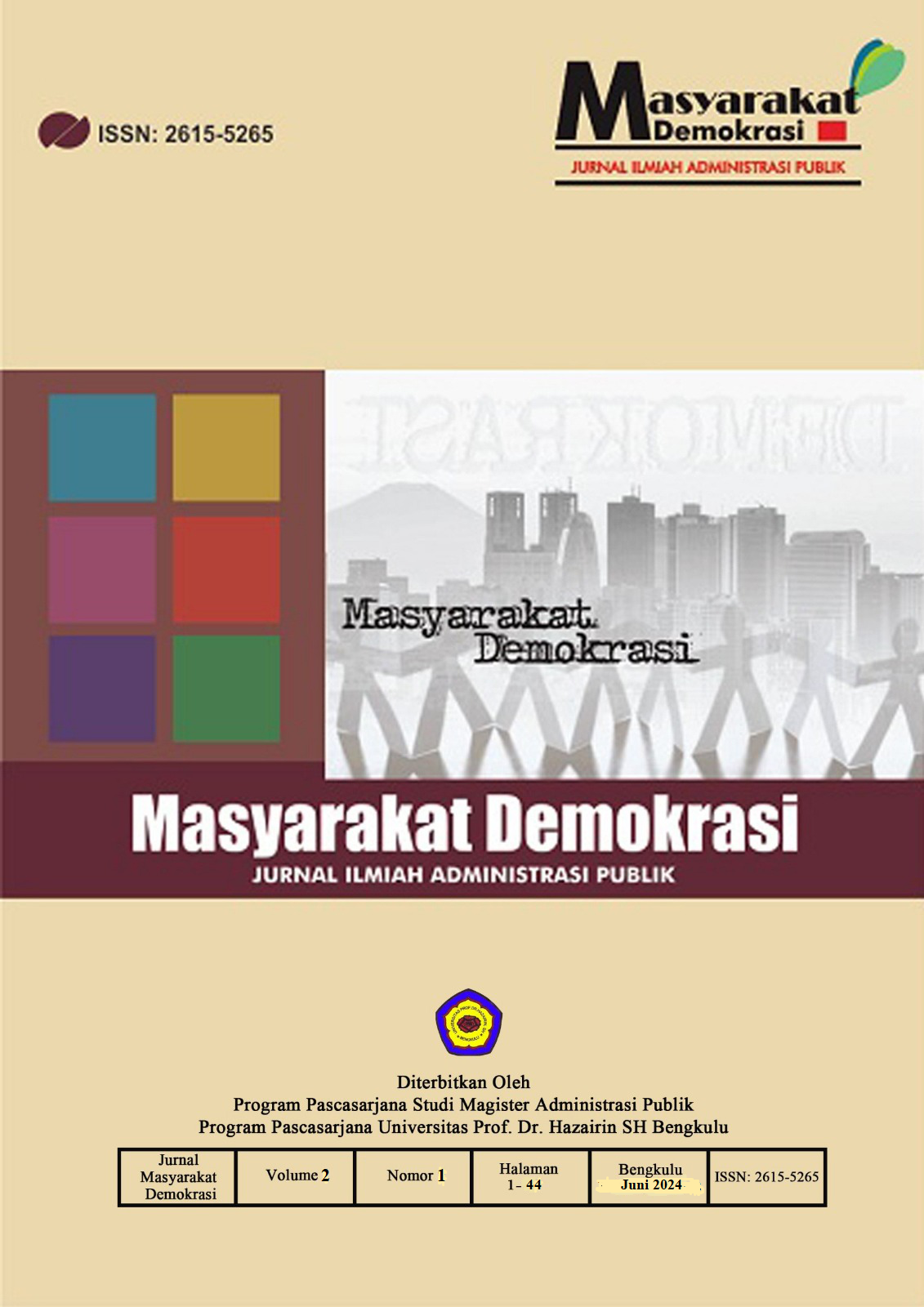ANALISIS KINERJA PEGAWAI DI KANTOR DESA TANJUNG NEGARA KECAMATAN KEDURANG KABUPATEN BENGKULU SELATAN
DOI:
https://doi.org/10.32663/md.v2i1.4578Keywords:
Performance, Employees, Village OfficeAbstract
This study aims to analyze the performance of employees in the Tanjung Negara Village Office, Kedurang District, South Bengkulu Regency. The method used in this study is a descriptive qualitative method, data collection is carried out through observation, interview and documentation techniques with the following research results: 1) for the main tasks and functions have referred to or are in accordance with Law Number 06 of 2014 concerning Villages. 2) In the performance of village employees observed by looking at 6 (six) elements, namely from quality, namely the work has been completed well, and the element of timeliness, especially in completing the work. Meanwhile, when viewed from the quantity element, there is no Village Head policy that is withdrawn or canceled on the grounds that it is not in accordance with the needs of the community. Meanwhile, when viewed from the element of timeliness, it appears that the performance agreement made by each Village office employee is related to efforts to achieve work targets that can be completed by Tanjung Negara Village office employees on time, namely one year of work. For the effectiveness of the suitability between the completion time and planning, Mandiri is specifically seen from the enthusiasm in completing tasks and commitment is seen from the enthusiasm of employees in completing work in accordance with their main tasks and functions. In carrying out their work, the employees of the Tanjung Negara Office, South Bengkulu Regency have factors that influence employee performance.







